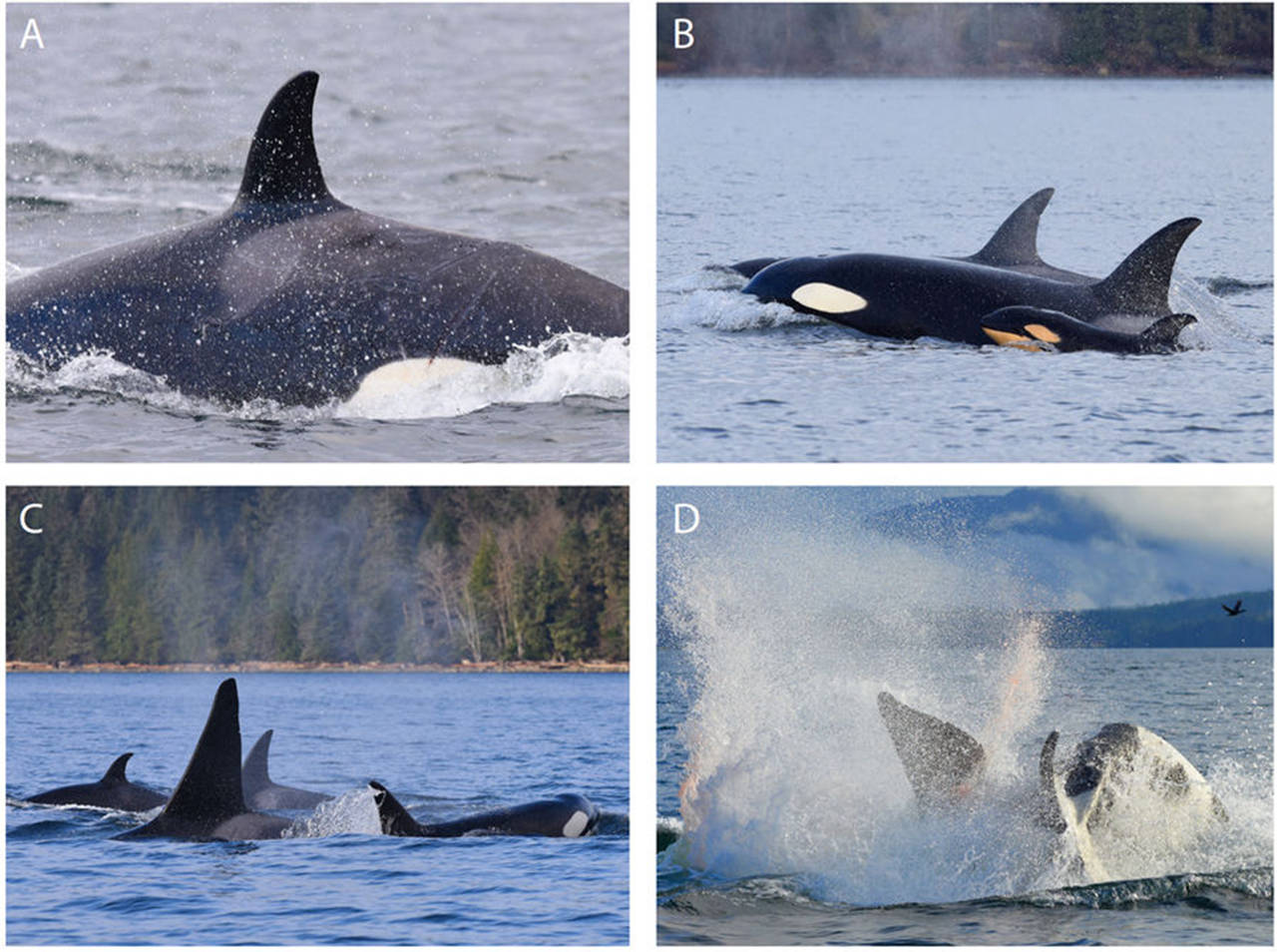The Salish Sea made international news last week as word spread that scientists had observed two orcas kill another whale’s calf in Johnstone Strait, north of Vancouver Island in British Columbia, in 2016. In a study published in Scientific Reports on March 20, Jared R. Towers et al. outlined what happened on that day in December.
“This is the first account of infanticide reported in killer whales and the only case committed jointly by an adult male and his mother outside of humans,” Towers wrote in the study. “Consistent with findings in other social mammals, we suggest that infanticide is a sexually selected behaviour in killer whales that could provide subsequent mating opportunities for the infanticidal male and thereby provide inclusive fitness benefits for his mother.”
According to the study, a research boat was sent to investigate some orca calls coming from a “remote hydrophone.” Scientists discovered an adult male orca, 32, and its mother, approximately 46, stalked a 13-year-old female, her two daughters, ages approximately 2 and 3, and her newborn calf. Fresh teeth marks were observed on the orca that was approximately 3 years old. The scientists followed the whales as they traveled west.
Erratic movements and predation-style actions were witnessed by the scientists from their boat, and they no longer saw the newborn calf by its mother’s side. The next time the scientists observed the calf, it was in the mouth of the adult male orca while the calf’s mother chased him. The scientists deployed a hydrophone as they were able to hear the orcas’ vocalizations audibly, while underwater cameras captured the events unfolding below.
The Sounder asked SeaDoc Society Science Director Joe Gaydos what his thoughts about the study were.
“What is remarkable is that these biologists actually saw this rare event occur and documented it so well – the proverbial needle in a haystack was seen and documented. We love orca and admire their family units and cohesive bonds,” Gaydos said. “Like finding out that transients kill more than they actually eat, this reminds us that they are wild animals, and while noble in many ways, also exhibit behaviors that we don’t admire or aspire to in our culture.”
To read the full study and for more details about the attack, visit nature.com/articles/s41598-018-22714-x.



